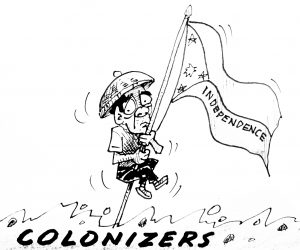Our country is a nation that has gone through a lot of struggles and achievements in history, and one very significant event that we commemorate annually is Independence Day. Celebrated on June 12, this holiday marks the day when the Philippines gained its independence from Spain after being colonized for over three centuries. With the country having been under different foreign oppressions throughout history, the Independence Day celebration is more than just a holiday, but a symbol of the Filipinos’ unyielding spirit in fighting for their freedom.
We observe Independence Day in different ways, from huge parades and flag-raising ceremonies to traditional Filipino food feasts. Celebrations often take place in schools, public gathering places, and other important sites to pay tribute to the nation’s heroes and show devotion to the motherland. The Philippine national flag is an essential part of Independence Day, and we hoist it in our homes and public buildings throughout the nation in recognition of what it stands for–the values and sacrifices of the country’s founders.
This celebration means a great deal for us, especially those living overseas. It is an opportunity for them to reconnect with their roots and celebrate the country’s liberty and nationalism with others who share their cultural background. The holiday is also a chance to spread awareness of the country’s struggles and achievements with those who are not familiar with the country’s history. Independence Day is the perfect time to reflect on the past, be grateful for what has been achieved and look forward to better days ahead.
We take pride in commemorating this special day and sharing its meaning with our fellow countrymen and other cultures worldwide. The holiday represents the bravery, sacrifices the Filipinos made for their freedom and their unshakable patriotism. It is a reminder for us to work together to uphold liberty, democracy, and justice for all.




